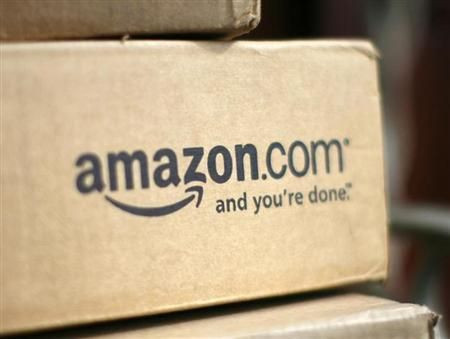Barefoot Books CEO On Why She Dumped Amazon: ‘Life’s Too Short For This’

Barefoot Books, an independent children’s book publisher based in Cambridge, Mass., announced on Monday that it is severing ties with the online retail behemoth Amazon.com Inc. (Nasdaq:AMZN) in North America and the U.K.
The quirky company, which aims to provide an alternative to the commercialization of childhood through books that stimulate kids’ imaginations, said it will continue to sell books to the education market, as well as independent bookstores and its own website. It will also maintain its existing relationships with distributors Baker & Taylor and Ingram.
But Amazon, which the publisher said does not align with Barefoot’s commitment to diversity and grassroots values, is out. The decision comes seven years after Barefoot stopped selling its titles to Barnes & Noble (NYSE:BKS) and Borders Books, back when big-box retailers were seen as the largest threat to the ecosphere of independent retailers and publishers.
Since that time, as Amazon’s popularity has grown, those companies have seen a reversal of fortunes, to say the least. Borders Group folded in 2011, while Barnes & Noble has poured its diminishing resources into trying, unsuccessfully, to beat Amazon by emulating Amazon. But as anyone who follows publishing knows, Amazon today has no rival. So how does a small book publisher break up with the world’s largest bookseller?
“At a certain point, you realize life’s too short for this,” said Nancy Traversy, co-founder and CEO of Barefoot Books, who spoke with IBTimes by phone from Massachusetts.
Traversy said the decision to cut Amazon off was a long time coming, and that it followed years of lowball price-fixing, delayed payments and frustrating interactions with Amazon’s automated publisher services.
“We couldn’t even talk to a human being,” she said. “It’s not a very satisfying way of doing business.”
The final straw, Traversy said, came when a Barefoot ambassador in the U.K. complained that Amazon was selling Barefoot Books titles for a staggering 80 percent below the regular retail price. Both publishers and retailers have long complained about what they say is Amazon’s strong-arm method of forcing book prices down to a level that makes profitability almost impossible. In recent years, as Amazon has expanded its own efforts into book publishing, many publishers have become convinced that the company’s end goal is to bring about their complete demise, as Pando Daily reported in January 2012.
Barefoot Books’ announcement has attracted an outpouring of support in what is increasingly seen as a Davids-versus-Goliath battle for the future of the publishing industry. Traversy said she received “like a million emails” since the news broke, mostly from well-wishers. It was a similar story on Twitter, where supporters used words like “gutsy,” “admirable” and “brave.” Some wrote that they hoped other publishers would follow. Raven Books, a bookstore based in Dublin, even tweeted that it planned to place a large order from Barefoot Books for a window display.
Added to today's To-Do List: Place large order of @barefootbooks for huge window display. thebookseller.com/news/barefoot-…
- Raven Books (@ravenbooks) May 22, 2013
Did Traversy expect such a massive response? “I know there’s the perception of the ‘big, bad Amazon,’ so I’m not that surprised,” she said. “I was just glad to see that it was positive. These things can go either way.”
But it wasn’t all positive. One user posted on the Barefoot Books Facebook page that “Amazon rocks!” citing the company’s lightning-fast delivery. Similarly, there is the prevailing wisdom that Amazon has become so large that publishers have no choice but to sell to it. Traversy said she’d heard similar arguments about Barnes & Noble and Borders a few years ago, but she said that leaving those companies behind turned out to make good business sense. In fact, U.S. sales increased 40 percent following the decision, largely due to a decrease in returns.
“I was told I was committing commercial suicide,” she said. “It didn’t happen.”
Got a news tip? Send me an email. Follow me on Twitter: @christopherzara
© Copyright IBTimes 2025. All rights reserved.






















